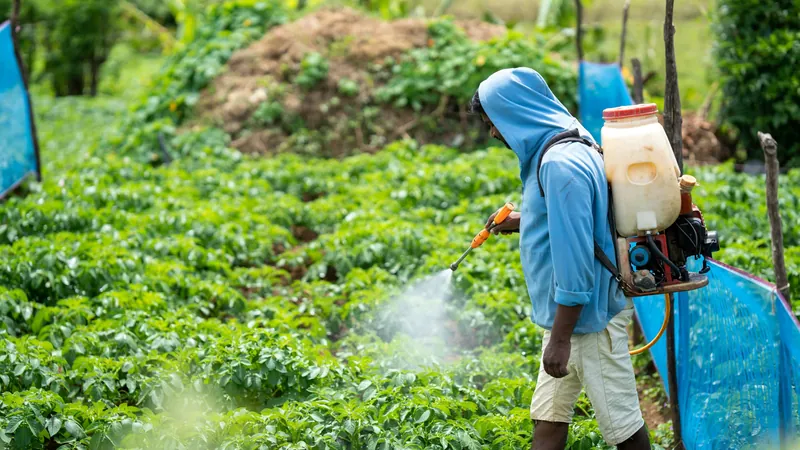
Shocking Study Links Common Pesticides to Prostate Cancer Risks – Are You at Risk?
2024-11-04
Author: Yu
Shocking Study Links Common Pesticides to Prostate Cancer Risks – Are You at Risk?
Recent findings have sent shockwaves through the scientific community, revealing that a staggering 22 different pesticides are consistently linked to the incidence of prostate cancer in the United States. Alarmingly, four of these pesticides are also associated with increased mortality rates from the disease, as detailed in a groundbreaking study published in the journal Cancer.
To delve deeper into this concerning issue, researchers conducted an environment-wide association study that examined the relationship between 295 pesticides and prostate cancer across various U.S. counties. They accounted for a crucial lag period of 10 to 18 years between pesticide exposure and the onset of prostate cancer, recognizing the slow-growing nature of many cases. The study analyzed pesticide usage data from 1997 to 2001 and then reviewed prostate cancer outcomes from 2011 to 2015, as well as pesticide use from 2002 to 2006 and outcomes from 2016 to 2020.
Three pesticides already recognized for their connection to prostate cancer were among the 22 identified, with 2,4-D featured prominently—this herbicide is known as one of the most widely used pesticides across the nation. The study revealed that the remaining 19 pesticides, which had not been previously connected to prostate cancer, included 10 herbicides, various fungicides, insecticides, and even a soil fumigant.
Further compounding concerns, four pesticides linked to the incidence of prostate cancer were also connected to prostate cancer mortality. These include three herbicides—trifluralin, cloransulam-methyl, and diflufenzopyr—alongside one insecticide, thiamethoxam. Notably, only trifluralin is classified by the Environmental Protection Agency (EPA) as a “possible human carcinogen,” while the other three are deemed “not likely to be carcinogenic” based on existing data.
Lead author Dr. Simon John Christoph Soerensen from Stanford University School of Medicine emphasized the relevance of this research, stating, “This study highlights the critical need to investigate environmental exposures, particularly pesticide usage, as we seek to understand the geographic variation in prostate cancer rates and mortality across the United States.”
With these revelations, it raises a vital question for millions of Americans: could your gardening habits or agricultural practices be putting you at risk? As the evidence mounts, the call for more stringent regulations on pesticide use grows louder. Stay informed about potential hazards and consider discussing environmental safety with healthcare professionals to safeguard your health and the health of your loved ones.

 Brasil (PT)
Brasil (PT)
 Canada (EN)
Canada (EN)
 Chile (ES)
Chile (ES)
 España (ES)
España (ES)
 France (FR)
France (FR)
 Hong Kong (EN)
Hong Kong (EN)
 Italia (IT)
Italia (IT)
 日本 (JA)
日本 (JA)
 Magyarország (HU)
Magyarország (HU)
 Norge (NO)
Norge (NO)
 Polska (PL)
Polska (PL)
 Schweiz (DE)
Schweiz (DE)
 Singapore (EN)
Singapore (EN)
 Sverige (SV)
Sverige (SV)
 Suomi (FI)
Suomi (FI)
 Türkiye (TR)
Türkiye (TR)